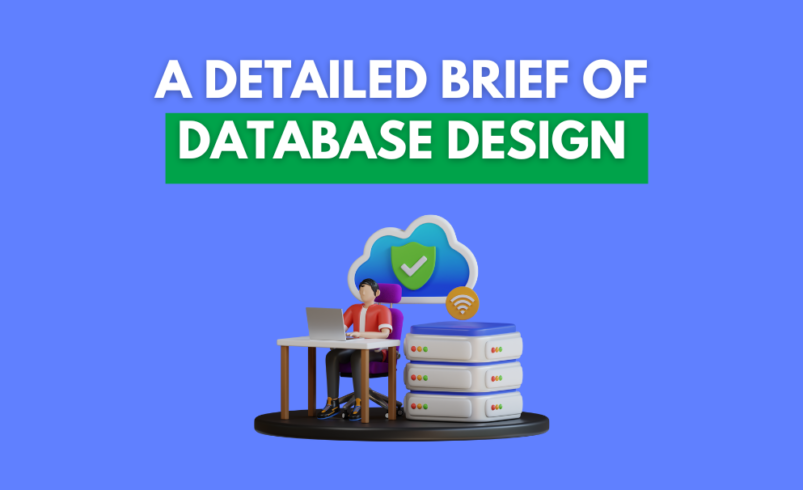
A Detailed Brief of Custom Software Development
In an era where businesses are continuously striving for efficiency and differentiation, custom software development stands out as a pivotal solution. Tailored to meet specific needs, custom software can streamline operations, enhance customer experiences, and provide a competitive edge. This detailed brief delves into the essentials of custom software development, its benefits, key components, and best practices.
1. What is Custom Software Development?
Custom software development involves creating software solutions tailored to the unique requirements of a business or organization. Unlike off-the-shelf software, which offers generic features to a broad audience, custom software is designed to address specific needs and workflows.
2. Why is Custom Software Development Important?
Custom software development is crucial for several reasons:
- Tailored Solutions: Provides functionalities that align perfectly with business processes.
- Scalability: Grows with your business, allowing for future enhancements and adjustments.
- Competitive Advantage: Offers unique features that differentiate your business from competitors.
- Integration: Seamlessly integrates with existing systems and processes.
- Efficiency: Streamlines operations, reducing manual effort and increasing productivity.
3. Key Components of Custom Software Development
Custom software development involves several key components and phases, including:
Requirement Analysis
Understanding the specific needs and goals of the business is the first step. This involves:
- Stakeholder Interviews: Gathering requirements from all stakeholders.
- Business Process Mapping: Analyzing current workflows to identify areas for improvement.
- Feasibility Study: Assessing the technical and financial viability of the project.
Design and Prototyping
Creating a blueprint for the software, which includes:
- Wireframes and Mockups: Visual representations of the user interface.
- Architecture Design: Defining the overall structure of the software.
- Prototyping: Developing a preliminary version to validate concepts and gather feedback.
Development
The core phase where the software is built, involves:
- Coding: Writing the actual code for the software.
- Integration: Ensuring the software integrates with existing systems.
- Testing: Performing various tests to ensure functionality and performance.
Deployment
Rolling out the software to the production environment, which includes:
- Installation: Setting up the software on relevant devices and servers.
- Configuration: Customizing settings to align with business needs.
- Training: Educating users on how to use the new software effectively.
Maintenance and Support
Ongoing support to ensure the software remains functional and up-to-date, involving:
- Bug Fixes: Addressing any issues that arise post-deployment.
- Updates: Implementing new features and improvements.
- Technical Support: Assisting users as needed.
4. Benefits of Custom Software Development
Investing in custom software development offers numerous benefits:
- Personalization: Solutions designed specifically for your business needs.
- Flexibility: Easily adaptable to changes in business processes.
- Integration: Seamlessly works with other systems and technologies.
- Efficiency: Automates tasks and improves overall operational efficiency.
- Security: Enhanced security features tailored to your specific requirements.
5. Applications of Custom Software Development
Custom software development is vital across various industries and applications, including:
Finance
- Custom CRM Systems: Tailored customer relationship management systems.
- Automated Trading Platforms: Customized solutions for trading and investment.
Healthcare
- Patient Management Systems: Software for managing patient records and appointments.
- Telemedicine Platforms: Custom solutions for virtual healthcare services.
E-Commerce
- Personalized Shopping Experiences: Custom e-commerce platforms with tailored features.
- Inventory Management Systems: Software for managing stock and orders efficiently.
Manufacturing
- Production Management Systems: Custom solutions for managing production processes.
- Supply Chain Management: Software for tracking and managing the supply chain.
Education
- Learning Management Systems (LMS): Custom platforms for online learning and training.
- Student Information Systems (SIS): Software for managing student data and records.
6. Best Practices for Custom Software Development
To achieve optimal results with custom software development, follow these best practices:
- Engage Stakeholders: Involve all relevant stakeholders in the requirement-gathering process.
- Define Clear Goals: Set clear objectives and success criteria for the project.
- Adopt Agile Methodology: Use agile development practices to allow for flexibility and iterative improvements.
- Focus on User Experience: Prioritize the user experience to ensure the software is intuitive and easy to use.
- Ensure Robust Testing: Conduct thorough testing to identify and fix issues before deployment.
- Plan for Maintenance: Have a plan in place for ongoing maintenance and support.
7. The Future of Custom Software Development
Custom software development is continually evolving, with new trends and technologies shaping its future. Key trends to watch include:
- Artificial Intelligence (AI) and Machine Learning (ML): Integrating AI and ML to enhance software capabilities.
- Low-Code/No-Code Platforms: Enabling faster development with minimal coding.
- Cloud-Native Development: Building software specifically for cloud environments.
- DevOps Practices: Streamlining development and operations for continuous delivery.
- Internet of Things (IoT): Developing software for the growing number of connected devices.
Conclusion
Custom software development is essential for businesses looking to gain a competitive edge, streamline operations, and meet specific needs. By understanding the key components and benefits, businesses can leverage custom software to drive efficiency, enhance customer experiences, and achieve their digital goals. At EZ Brand Builders, we specialize in delivering tailored software solutions that align with your unique requirements and help you build a strong, recognizable brand. Investing in custom software development ensures your business remains adaptable, efficient, and secure in a rapidly evolving digital landscape.








